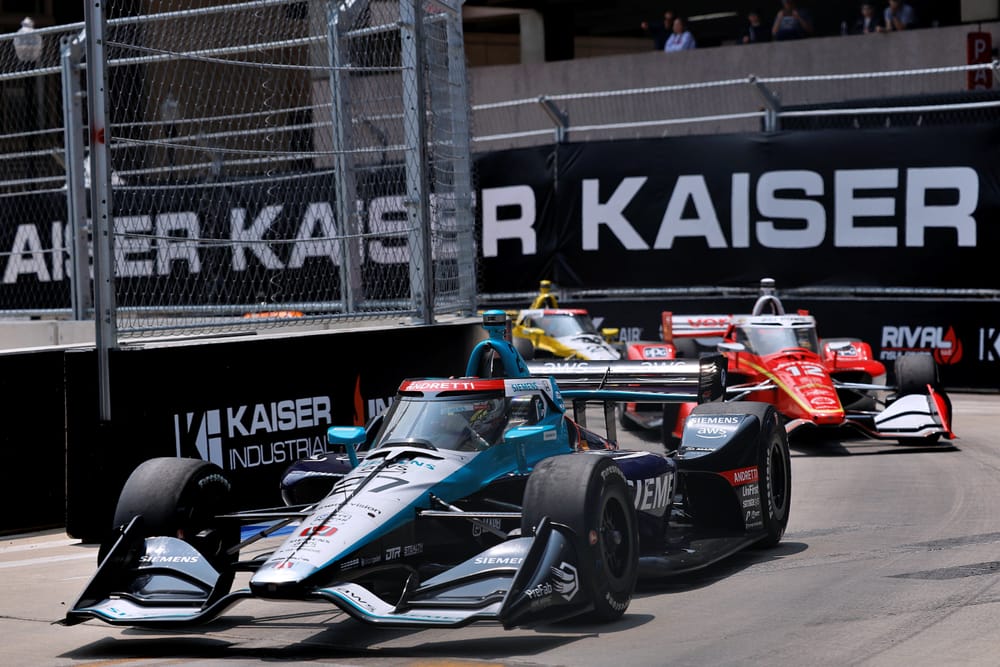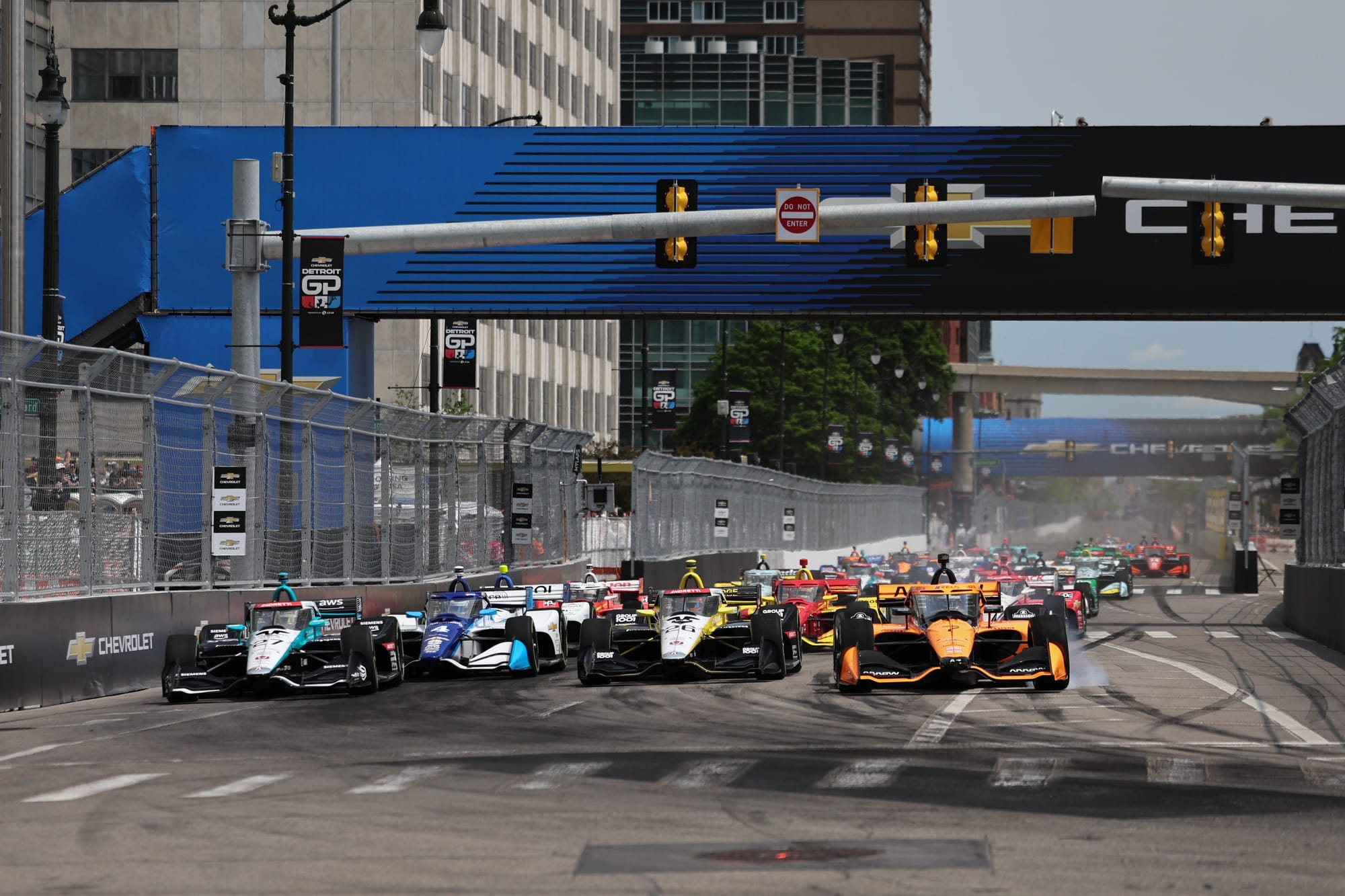Will Power smashing into the back of Kyle Kirkwood and then driving him around the Detroit track like a rag doll was IndyCar's own version of Max Verstappen's collision with George Russell in Spain last weekend.
The difference was, Power's went without any penalty whatsoever. It's seemingly been swept under the carpet with no further action taken.
Power was on a hot lap in Detroit in first practice when he encountered traffic. He hit the back of Kirkwood's car and then floored the throttle, leaving Kyle Kirkwood juggling his steering wheel desperately trying to break free. You could almost feel Kirkwood's desperation from watching him frantically trying to escape and then not smash into the wall.
Will Plower https://t.co/vcEktPhMuh
— Kyle M. Kirkwood (@KKirkwoodRacing) May 30, 2025
After the incident, Power apologised and Kirkwood - typical of him - was good-natured. As aggressive as he got was hilariously captioning the onboard video "Will Plower" on social media.
Ultimately, it seemed to be a no harm, no foul incident. Despite gearbox casing and floor damage, Kirkwood went fastest in his practice group shortly after being rammed. Only clipping the wall in qualifying robbed him of pole and he won the race in as comfortable fashion as a mad IndyCar street race can be won, such was his pace advantage.
But just because Kirkwood wasn't massively inconvenienced by the incident, that doesn't mean Power should have gone unpunished.
Before we get into that in more detail, we should set out why Power wasn't penalised.
The Race understands IndyCar was not keen to over-police two experienced IndyCar drivers. After all, the incident happened in a practice session that counted for nothing ultimately in terms of results, and no other driver was seriously inconvenienced with no red flag to contend with.
It also factored in Kirkwood being to blame for being sat on the racing line while Power was on a hot lap, which I understand, but don't agree with that exonerating Power.
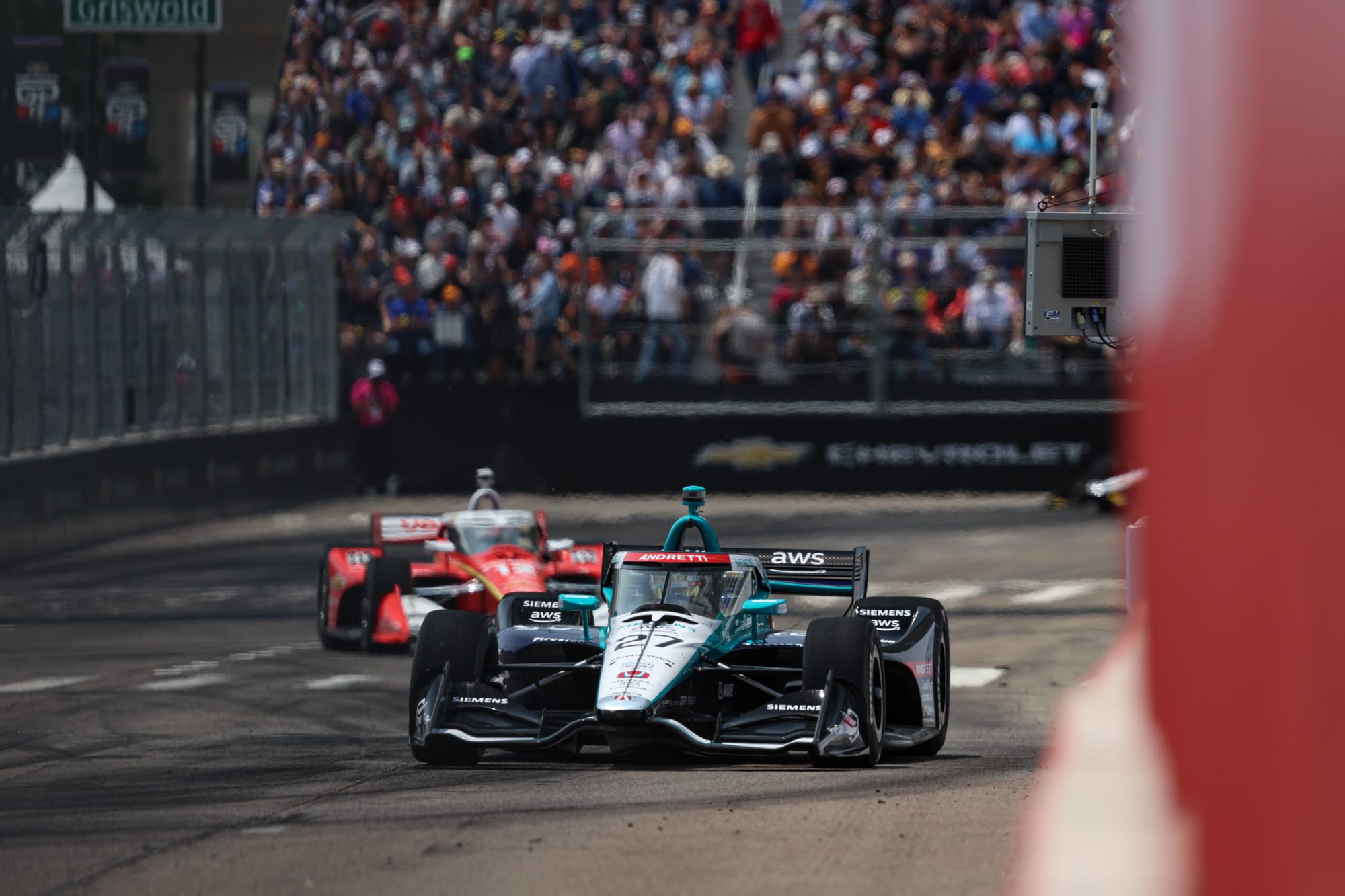
To offer a counterargument, Kirkwood was queuing behind David Malukas like a plane on a taxiway. He didn't have anywhere to go and if he'd overtaken Malukas, he'd have totally screwed him over by making Malukas sit in his dirty air. Those are the unwritten rules of starting a lap in a practice or qualifying session.
I quite like IndyCar's usual officiating response, which tends to let things go when there's no major cost involved - ie somebody's race being ruined. There were plenty of incidents in the race, such as Scott McLaughlin spinning Nolan Siegel or David Malukas shunting Alex Palou, that were met with stern drivethrough penalties.
I also think IndyCar's staff behind the scenes really care about what people think and do in-depth reviews to ensure they've made the right decisions. These are human beings working under pressure in difficult, public and opinion-charged circumstances.
Kirkwood's damage probably wasn't enough to breach the barrier of what constitutes major cost in this instance, and Power is reported to have offered to pick up the cheque by some people listening in on his apology, although this is unconfirmed.
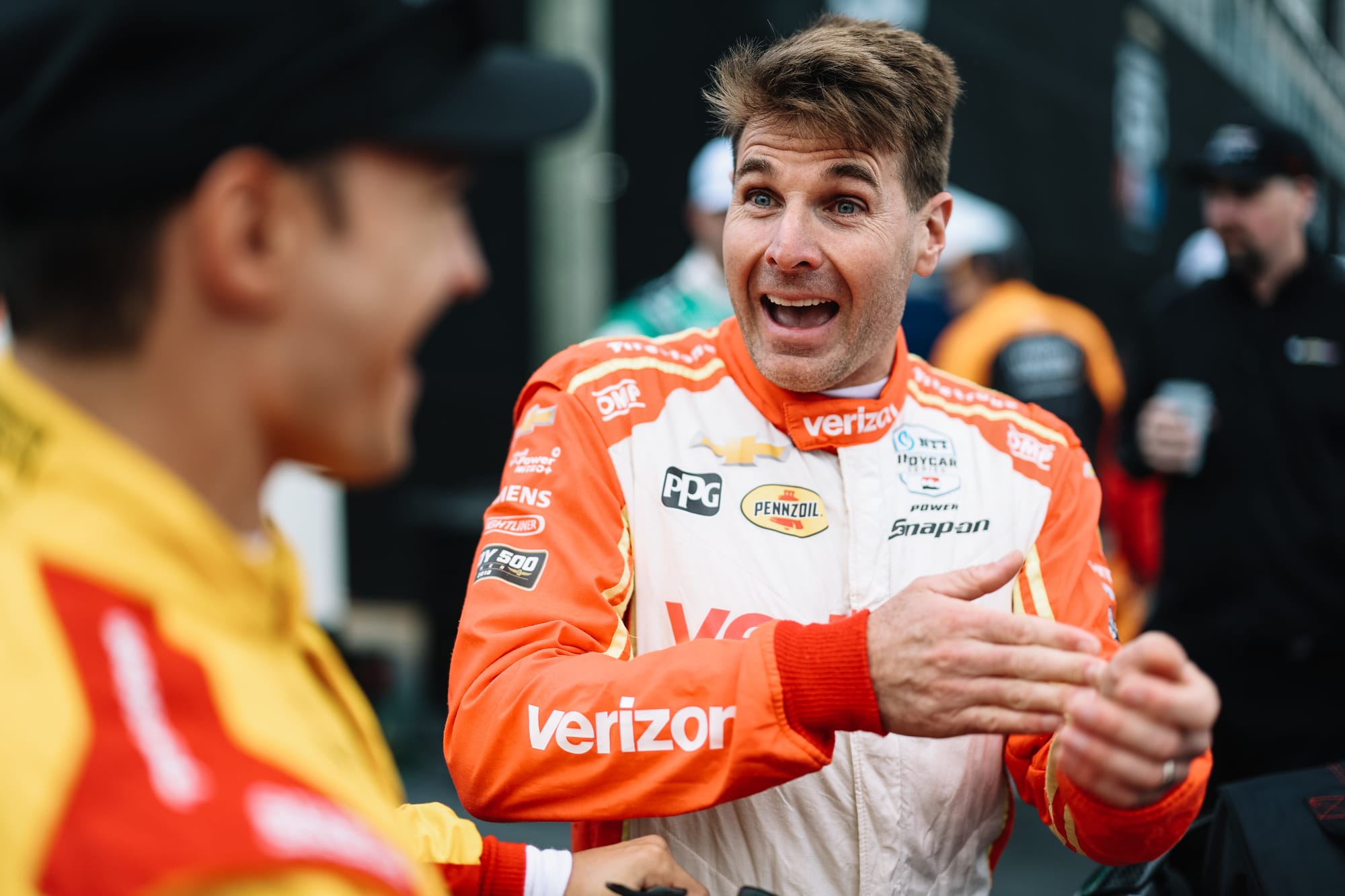
During the race on Sunday the TV cameras caught Power and Kirkwood chatting alongside Alex Palou and Conor Daly. Palou made a gesture of someone putting their foot hard down on the accelerator and all four drivers were grinning and laughing.
So, maybe it was, no harm, no foul, and I'm overreacting.
But for me, the incident sets a worrying precedent. It seems in the future, whether someone meant to be in the way or not, they can be rammed out of the road without punishment. Traffic on street circuits is so common that, if this is allowed to happen repeatedly, it's going to get very stressful for drivers and expensive for teams dealing with the consequences.
How far do you let that go? Kirkwood could have been slammed into the wall. At other tracks, drivers might do it in more dangerous areas. The consequence of using your car as a JCB to move other cars out of the way is potentially dire indeed.
Then there's Power's immediate reaction: laughing about it on TV. And then he swerved toward Devlin DeFrancesco in second practice after he'd deemed DeFrancesco to be in his way. This is not acceptable behaviour and it should be dealt with accordingly.
'Let them race' - if roughly translated as let people do what they want and sort out the consequences in their own way afterwards - very rarely works long term in any form of racing. Eventually, someone takes it too far and there are serious consequences. This didn't happen in a race but, by not penalising Power, you are inferring the drivers should sort it out themselves.
This is an elite-level championship being shown on TV to more and more people every year, and it should be policed with that in mind.
Is this the example you want to set for the drivers? To the young drivers in other series watching that unfold? That ramming people out of the way like it's a video game, laughing about it and then swerving at someone aggressively in the next session, should go unpunished?
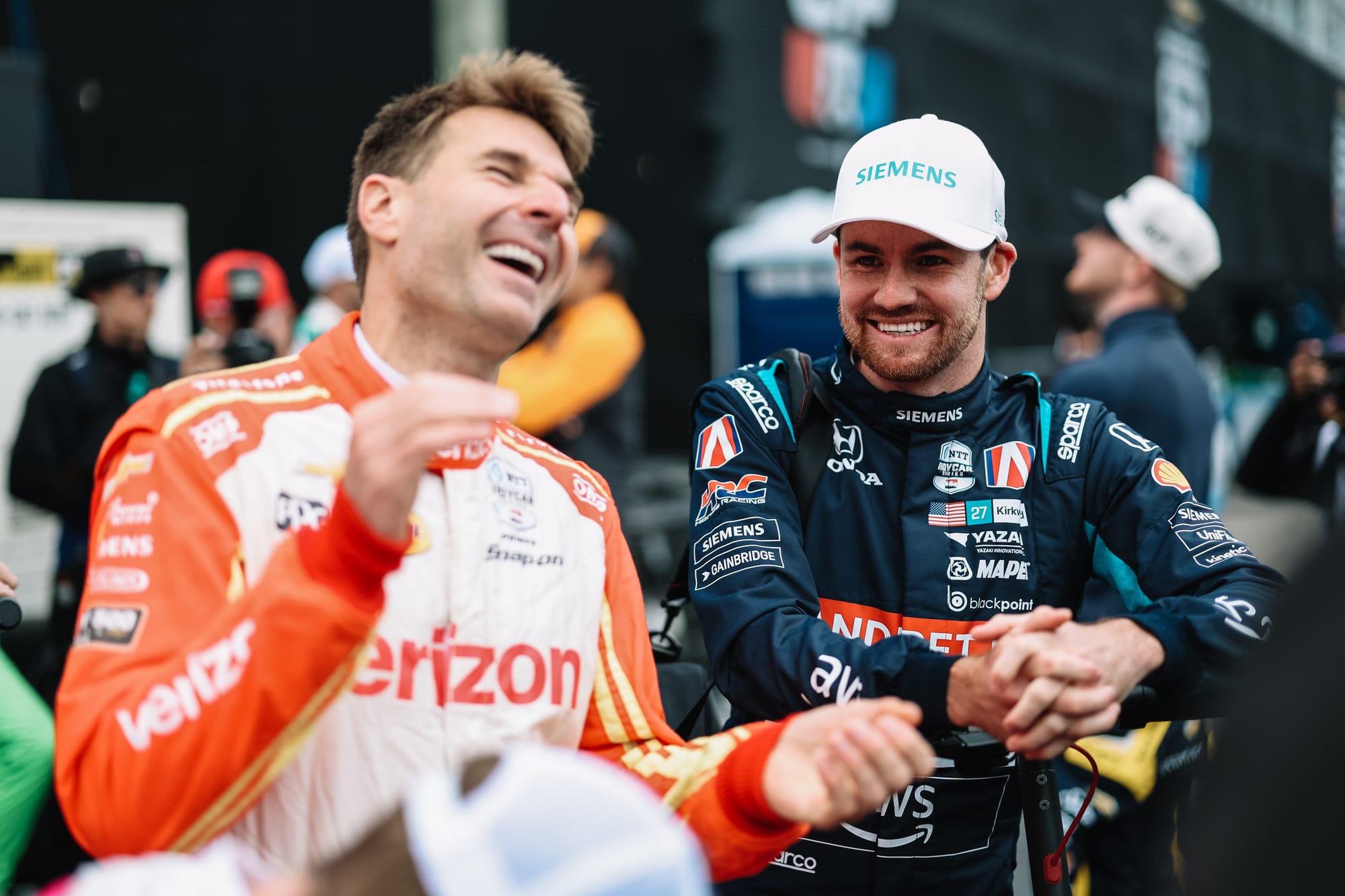
Did Power get away with this lightly because it was laughed off by him, Kirkwood and others?
Let's imagine for a second Santino Ferrucci had done this. I'm certain that some people would have been calling for a race ban had he been the one ramming Kirkwood out of the way and the pressure on the officiating crew would have cranked up considerably.
People in other series have been banned for similar instances in the past.
I don't think Power should have been banned. But should he have got off scot-free to qualify eighth and finish fourth without consequences? Not in my book.
It's been a rough month for Team Penske and for Power. I don't want to see any driver getting harsh penalties, but the intent was there and it sets a worrying precedent for the future.
Speaking of Ferrucci...
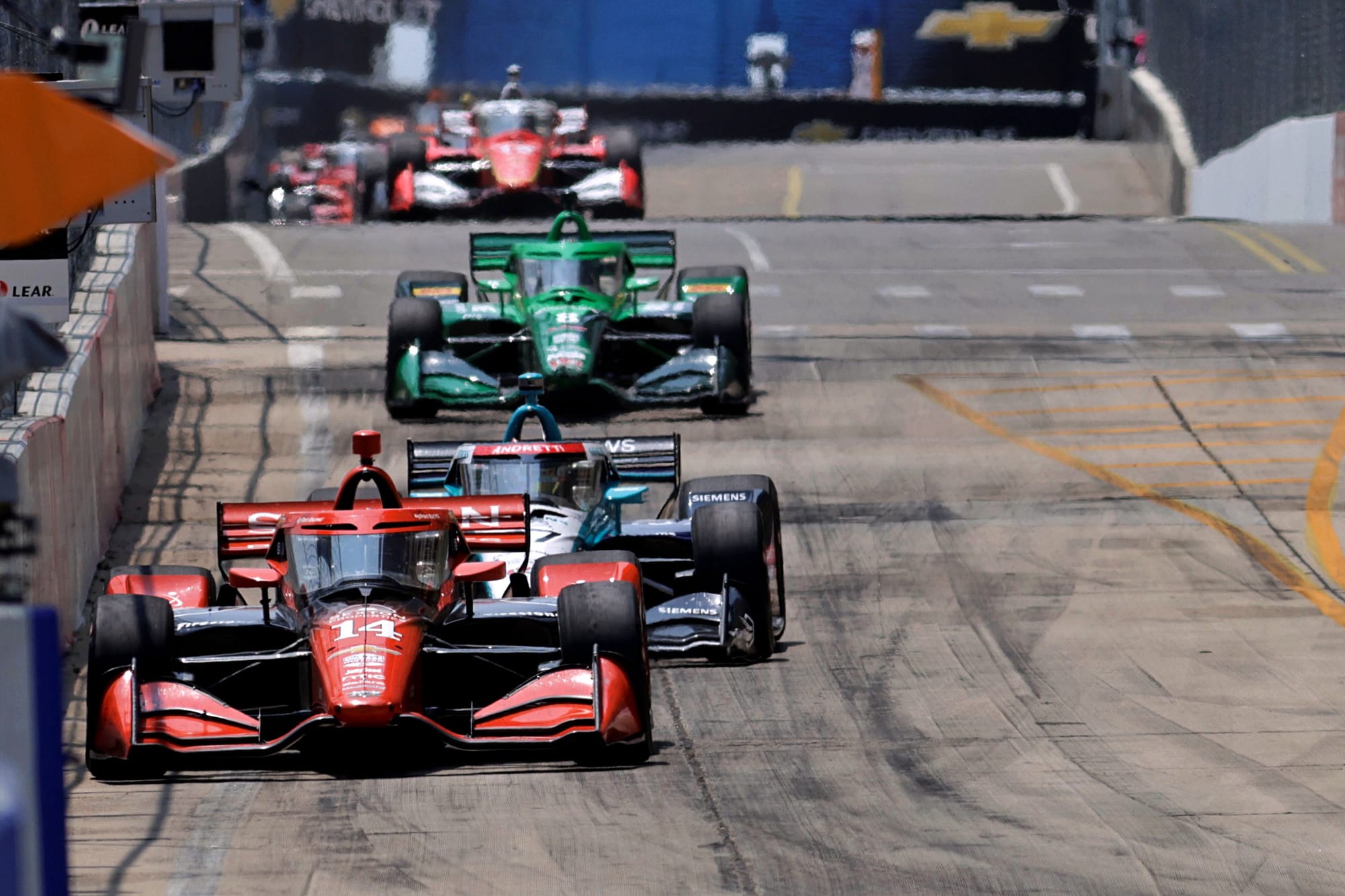
For a second race in a row, IndyCar found the second-place car in a race to have been outside the rules.
At the Indianapolis 500, it was Marcus Ericsson, who was thrown to the back of the result along with team-mate Kirkwood for having a modified spec part. In Detroit, it was Ferrucci for a weight issue.
But Ferrucci, despite losing 26 crucial points, was allowed to keep his second place. Why?
First of all, some common sense has clearly been applied in this case. Ferrucci's car was 10lbs (4.5kg) overweight, so there was no competitive advantage from the indiscretion. Basically, his Foyt team hadn't added enough ballast to the car in the area where it is designated to make the driver and ballast weigh 185lbs (roughly 84kg) in total. The car was not underweight, this procedure was just executed incorrectly by the team.
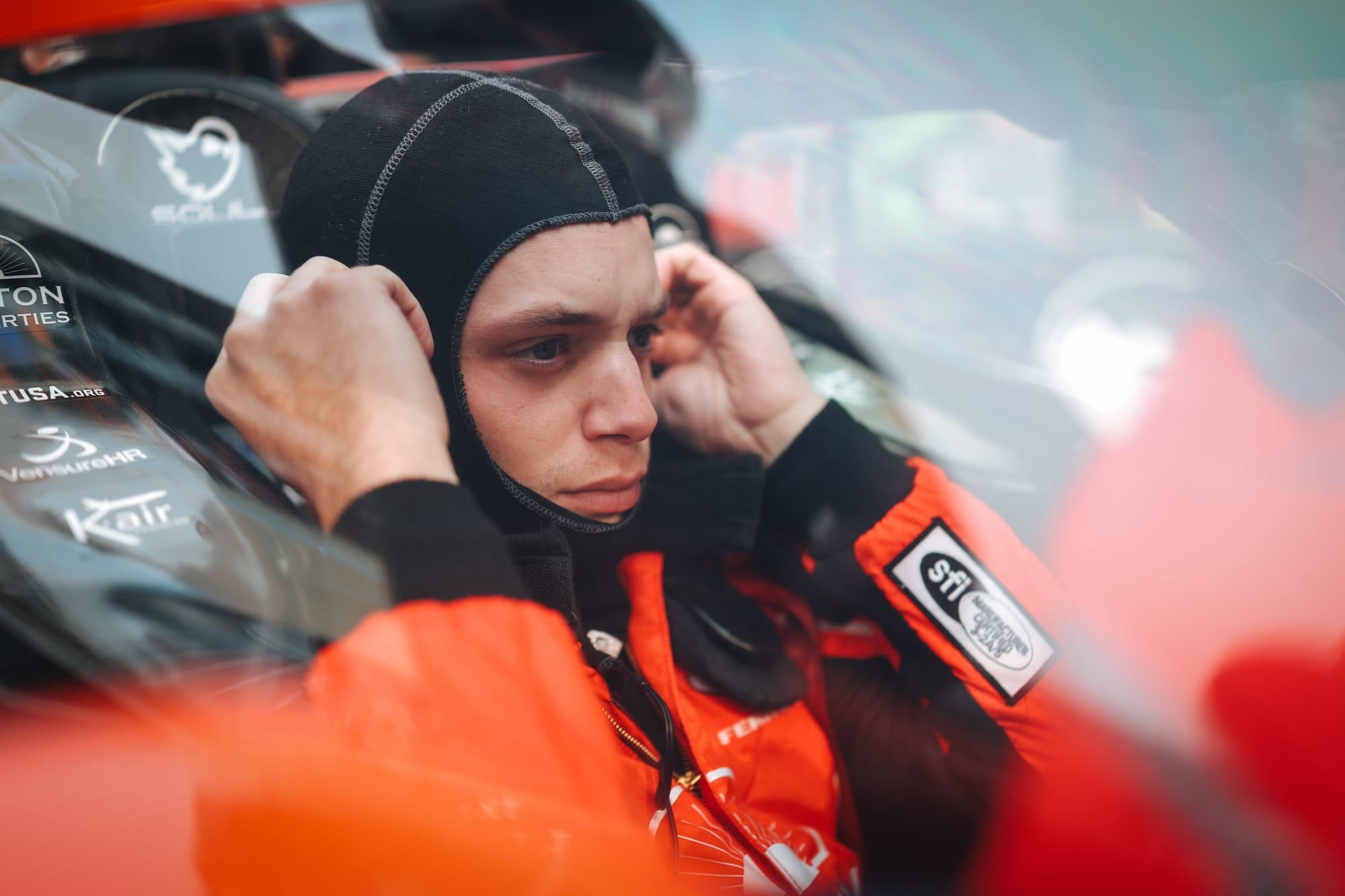
The cause could be as simple as Ferrucci having lost a lot of weight in the gruelling Indy 500, or in the days leading up to the Detroit race, and that was overlooked.
The points fine is already harsh for something that could have just been a fine or a warning, especially when you consider Ferrucci is one of the lightest drivers in the paddock and therefore any fluctuation in his weight would impact the ballast needed significantly.
But IndyCar has certainly done the right thing in allowing Ferrucci and Foyt to keep the result, and it's consistent with other penalties.
Alexander Rossi was allowed to keep his Indianapolis road course win in 2022 when Andretti used his drinks pouch to make up the minimum weight of the car, so there's precedent here for something similar.


